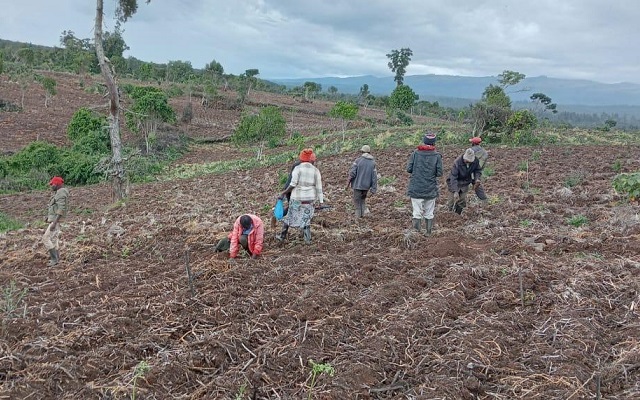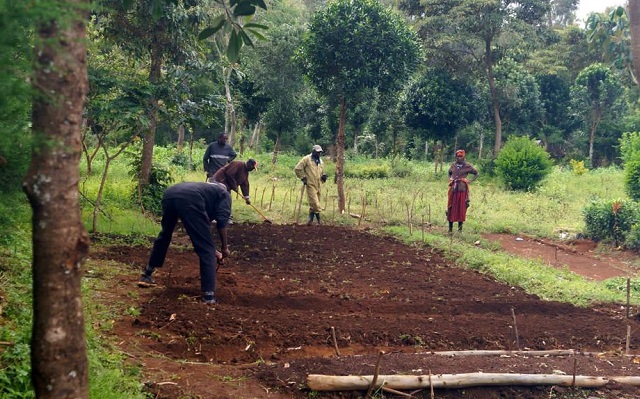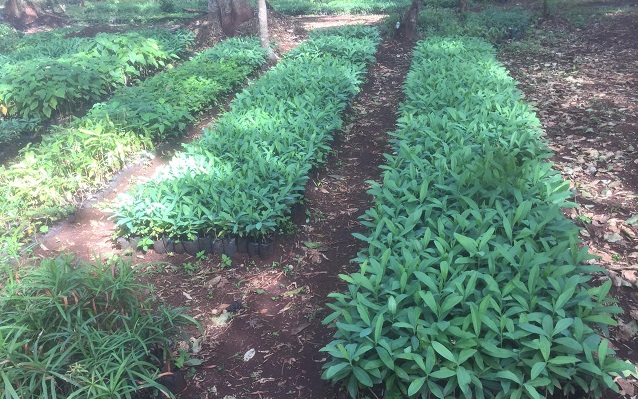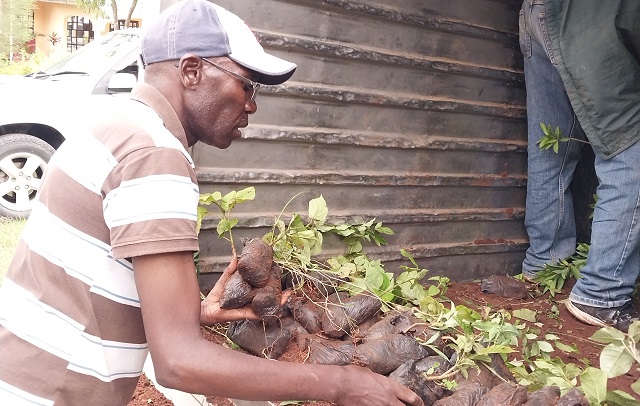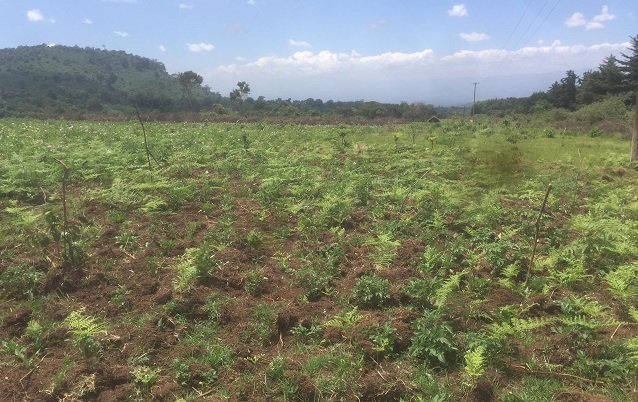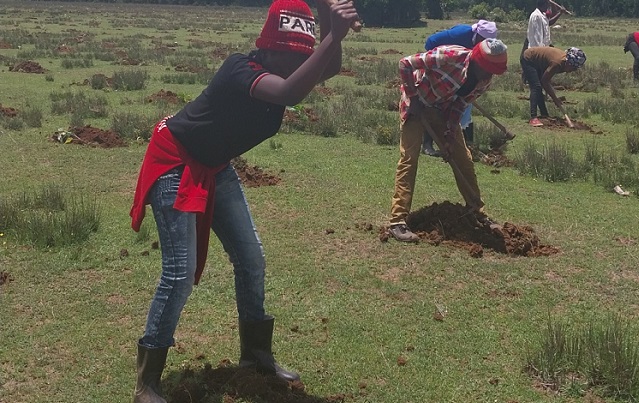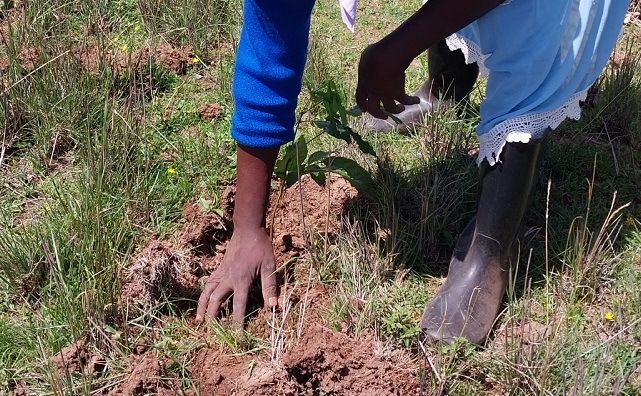Community-driven regeneration of native forests at Mount Kenya
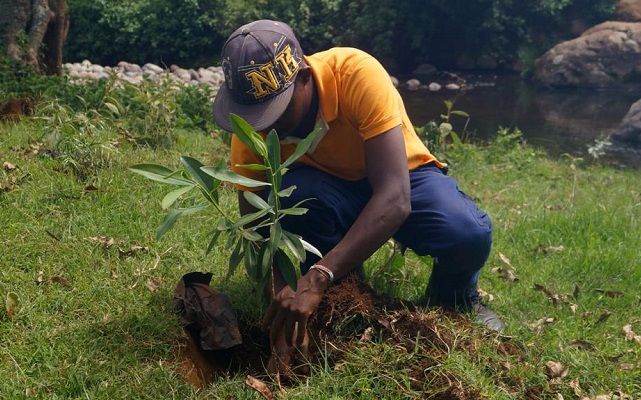
Inhabitants living around Mount Kenya are often poor, since climate change is hitting the agricultural sector particularly hard. Attempts to restore the once dense forest by planting exotic trees failed due to the illegal use of trees. The IKI Small Grants project therefore plants 150,000 indigenous trees to restore the habitat for wildlife.Further, forests act as a natural carbon sink that benefits the climate. The planted trees produce essential oils, tea-like leaves or dyes for the paint industry and therefore serve as an additional source of income for the local population. The community-owned tree maintenance programs ensures the sustainability of the project and shares the methods and learnings of the project with other resforestation initiatives in Kenya.
INITIAL SITUATION
The Kabaru, Gathiuru and Nanyuki forest blocks all belong to the Mount Kenya forest ecosystem. A few decades ago, many exotic tree species were planted in these blocks to restore the once dense forest. However, many of these trees have disappeared again as people from the communities living around these forests have illegally used the trees for charcoal burning, logging, and poaching. 40 percent of the 30,000 people live below the poverty line of 1.90 USD per day. In addition, droughts caused by climate change are reducing agricultural income and displacing people into the forests.
TARGET GROUP
The IKI Small Grants project targets 1,500 members of community forest associations of Kabaru, Gathiuru and Nanyuki. Out of these, 18 community nursery groups benefit from the project through training on the propagation and distribution of seedlings. The three largest groups are a women’s group with 40 women, a youth group with 43 young people and a mixed group consisting of 35 men and women.
APPROACH AND ACTIVITIES
The IKI Small Grants project aims to restore the native forest on the slopes of Mount Kenya that serves ecologic, climatologic, and economic objectives. To do so, the organisation trains 750 members of three community forest associations and 150 members of 18 nursery groups on maintaining a native forest containing commercially relevant trees. The training consists of eight components ranging from land rehabilitation, plant health to seed propagation techniques. The organisation further trains 50 beneficiaries (including 25 women) from 10 seed collection centres on best practices in biomass collection and harvesting, winnowing, sorting and grading.
The project further includes training and hands-on support to 150 beneficiaries of 18 nurseries and seed collection groups in establishing nurseries. It organises seedling distribution and tree planting campaigns in each of the three forest blocks. This results in 150,000 native commercial relevant new planted trees.
To ensure the sustainability of the project, the organisation develops community-owned tree maintenance programs with the boards of each community forest association. This includes a regular supervision, maintenance activities of the community owned forests, production of short movies to share the methods of the project and learning with other reforestation initiatives across Kenya. It also includes the organisation of forest stakeholder workshops and a presentation of the updated participatory forest management plans to the community.
LATEST PROJECT HIGHLIGHTS AND IMPACTS
- 1367 members of community forest associations trained on leadership, restoration, and reforestation
- All 18 community nurseries established, and members trained in seed selection, tree propagation, tree nursery management, business skills and marketing
- All 10 seed collection centres supported (8 of them managed by women)
- 104,543 native trees planted, included the 12,192 seedlings that were replanted after failing to survive
CAPACITY DEVELOPMENT
IKI Small Grants supports HSHC in their organisational capacity development through:
- Guiding through international certifications for several non- wood forest products
- Supporting a fundraising strategy
- Supporting organisational Monitoring and Evaluation frameworks and tools
ABOUT THE ORGANISATION
Help Self Help Centre (HSHC) is a national development agency, registered in Kenya in 1993. Its mission is to work with smallholder farmers and the food and chemical industries to eradicate poverty and environmental degradation through sustainable management of natural resources. For this reason, HSHC replants native trees that have a commercial value for local people. With this the organisation wants to protect and recreate original natural forests that address the habitat requirements of local wildlife. It further aims to plant commercial relevant tree species and ensure that communities protect those trees.

